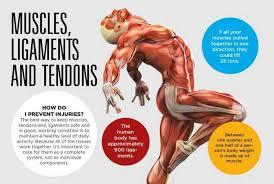The human body contains over 600 muscles, which are responsible for movements, posture, and stability. These muscles are made up of a network of fibers, nerves, and blood vessels that work together to produce force and movement. Understanding the different types of muscles in the body and their functions is essential for overall health and fitness.
Skeletal muscles, which are attached to bones, are the most numerous type of muscle in the human body, comprising over 40% of body weight. These muscles are responsible for voluntary movements, such as walking, running, and lifting weights. Skeletal muscles work in pairs or groups to create movement, with one muscle contracting while the other relaxes. For example, when you bend your arm, your bicep muscle contracts, while your tricep muscle relaxes.
Smooth muscles are found in the walls of internal organs, such as the stomach, intestines, and blood vessels. These muscles are responsible for involuntary movements, such as the contractions of the digestive system and the dilation and constriction of blood vessels. Smooth muscles are controlled by the autonomic nervous system and are not under conscious control.

Cardiac muscle is found in the heart and is responsible for the contractions that pump blood throughout the body. Unlike other muscles, cardiac muscle is involuntary and contracts rhythmically throughout a person's lifetime. The structure and function of cardiac muscle are different from other types of muscles, with interconnected fibers and specialized cells that allow for coordinated contractions.
In addition to the three main types of muscles, there are also smaller muscles that are responsible for movements and stability in specific parts of the body. For example, the muscles in the hand and fingers allow for fine motor movements, while the muscles in the neck and back provide stability and support for the spine.
Maintaining strong and healthy muscles is important for overall health and fitness. Regular exercise, including strength training and cardio, can help to build and maintain muscle mass, improve strength and endurance, and reduce the risk of injury. Adequate nutrition, including protein and other essential nutrients, is also important for supporting muscle growth and repair.